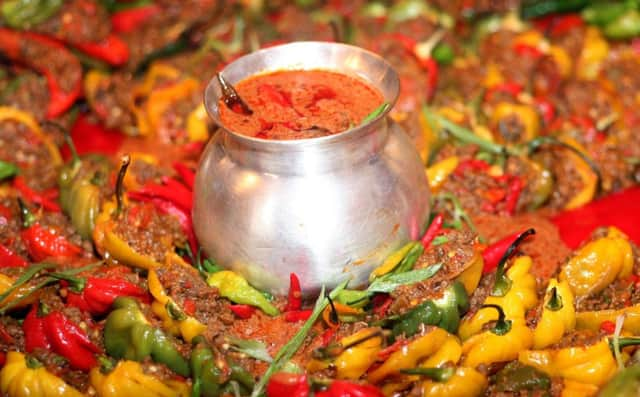Greg Wright: Are we seeing the sad decline of curry-loving England?


There are worrying signs that a combination of tougher immigration laws, and the retirement of our nation’s “curry pioneers” is killing off an industry that provides jobs for around 100,000 people.
Some analysts fear that a third of the UK’s 12,000 curry houses face closure. It’s a case of not enough cooks spoiling the business model. Many restaurants blame the lack of trained chefs on a Government cap on skilled workers from outside the EU, and the reluctance of a younger generation to seek work in the sector.
Advertisement
Hide AdAdvertisement
Hide Ad“It’s one of the worst times ever for the curry industry,’’ said Oli Khan, of the Bangladesh Caterers’ Association. “Indian cooking is an art.”
The industry also supports around 50,000 to 60,000 people who are employed in the supply chain. It’s estimated that up to two curry houses a week face closure, so the knock on effects could be significant.
“What will happen to the curry lovers?” Mr Khan said. “It will affect everywhere. Even small villages have a curry house.”
Many businessmen feel that we all benefit from an unrestricted flow of labour. For example, Dan Gill, the managing director of Dine, the hospitality and event management company, believes a free flow of skills will benefit the industry, provided staff are not being exploited.
Advertisement
Hide AdAdvertisement
Hide AdHe added: “Those looking for authenticity can import the very best skills from around the world to the benefit of the UK hospitality sector and consumers alike.”
The Home Office claims that the UK is still welcoming top chefs who are on the shortage occupation list; the official list of jobs for which there are not enough resident workers to fill vacancies. But, as the Home Office confirmed, the required salary for chefs on this list is £29,570, which is around £5,000 higher than the average salary for this work. It’s not surprising some restaurants are feeling the pinch.
The Home Office spokesman also assured me that the Government wants to nurture much more home-grown talent, and encourage young people in the UK who want to pursue a skilled career.
He added: “This means the restaurant sector offering training to attract and recruit resident workers to meet their staffing needs. That is why we have been working closely with the Asian Restaurant Skills Board, who are developing and promoting scholarships and apprenticeships to help restaurants fill their kitchens with the best up-and-coming talent from the UK.”
Advertisement
Hide AdAdvertisement
Hide AdWoe betide a firm who breaks the law. Alex Clements, a partner at the law firm Schofield Sweeney, told me: “As the skills criteria required for the right to work in the UK have been raised, so too have the penalties on employers illegally employing migrant workers.”
Employers can receive a civil penalty of up to £20,000 per illegal employee, and a two year prison sentence and unlimited fine for knowingly employing an illegal migrant worker.
To John Robinson, a partner in law firm Clarion’s employment team, this debate illustrates how immigration remains a political chess piece.
He said: “Those chefs from India who fall below the salary limit will now have to leave the country after five years, and will not be eligible for permanent residence. These rules, therefore, only allow the top five per cent of chefs into the country from non-EU countries, which must be good news for the consumer, the economy and those chefs who do get in, as they will receive a salary reflective of their skills and ability.”
Advertisement
Hide AdAdvertisement
Hide AdAccording to Mr Robinson, the industry perhaps needs to concentrate on making this career more attractive to young British Indians and Bangladeshis, rather than disincentivising them with long working hours, and relying on non-EU chefs who are less likely to complain about such working conditions.